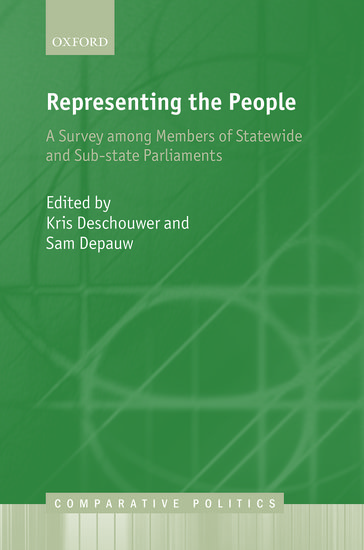
Comparative Politics
A Survey Among Members of Statewide and Substate Parliaments

Comparative Politics
A Survey Among Members of Statewide and Substate Parliaments

Based on interviews with members of over 70 parliamentary assemblies Representing the People explores how members of parliament perceive their role as representatives, and shows that the way in which they represent depends very much on the party to which they belong.
Levertijd op aanvraag
Modern democracy is organized as a representative democracy in which those representing the people are elected to office. Political parties play a crucial role in this. They select the candidates, form or oppose governments, and organize the work of the representatives in parliament. This model of democracy is however being criticized. Parties are hardly trusted and voters have become volatile. How, then, do elected representatives of the people see and fulfil their role? To study this a survey was organized among the members of statewide and sub-state parliaments in fifteen countries. Members of seventy-three parliamentary assemblies were asked how they perceive their representative role, what they do to keep in touch with voters, how they behave and vote in parliament and how they will try to get re-elected.
One of the ways in which candidates and elected members of parliament might react to the changing conditions in which they have to represent the people is by stressing more personal characteristics as opposed to the party label and party ideology. Representation might then become more a matter of personal choice. The results of the survey presented in this book do however confirm quite strongly that representation is very much shaped by the political institutions in which it is performed. Representation differs between countries, between different electoral systems, between statewide and regional parliaments, and depends strongly on the party to which a member of parliament belongs. Representation depends not as much on who the representatives are, as on where they are.